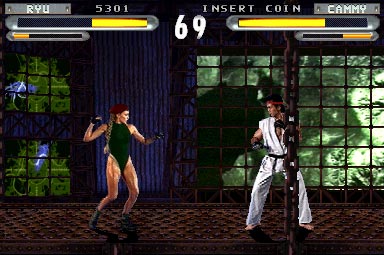How much would you pay for games in a "choose your own price" world?
By Pandakid 38 Comments
Hey all! I'm new to Giant Bomb and I'm gonna try my hand at blogging. Let's see how this goes.
Here's a question I think we can have fun with:
What if we decided on the amount we wanted to pay games?
Let me give you a brief explanation of my way of thinking before yelling "Off with his head!" and banishing me as a heretic. You may remember a few years back the band Radiohead offered their newest album (In Rainbows) free of charge and allowed their fans to pay what they want. This move was considered as extremely bold and the opinions generated were on complete opposites of the spectrum. Of course I would never go so far as to suggest the video game industry as a whole follow suit. I am merely musing about what the effects this dramatic change would generate. True, offers such as the Humble Bundle exist, but I'm hypothesizing for all video games.
If you were to decide the amount to pay a game, what would be your most important factors to consider? Would it be games with the best graphics? The longest development time? The best multiplayer? The most addictive gameplay? Or the best story? I think, at least for me, that the most important component of a game is the fun factor. Of course you can't simply create a 30 second game, fun as it may be, and sell it at full retail price. Other elements inevitably come into play such as the company that releases the game, your preferences in genres and the amount of time you are ready to invest. I believe games need to be engaging and make you want to care about its characters. They do not necessarily have to be completely out of the box. The best example of this is The Legend of Zelda: The Ocarina of Time. All in all, except maybe the horseback riding and Z-targetting, nothing was really innovative about this game. Nonetheless, everything was just so perfect that you could not put the controller down. You wanted to know what happened to Link next. You just HAD to obtain the next gem or new weapon. I was just completely blown away by this game. The graphics were unbelievable (at the time), the sound was spectacular (the ocarina tunes among others) and the gameplay was spot-on. This is but one example. Portal actually made me care about a cube! A single cube with hearts on it and no personality whatsoever. Now THAT is game design taken to the next level.

Naturally, I can't be so naive as to think there wouldn't be any downsides to such an experiment. How many gamers would be honest in an honor system? Many would definitely not even deem games worthy of spending a single penny! It is my understanding even so that this would constitute only a minor percentage of the overall gaming community. I am quite certain that the majority of you fine men and women would give a reasonable amount of your hard-earned money to the companies who in turn try to offer the best product possible. But how much would you be willing to spend on games of the current generation? 20$? 50$? 60$? 100$? Would you pay more for a game published by a big company? Or does that not even matter in your equation in buying games?
Another dilemma would be the great fear of developers in creating new intellectual properties. Aspiring Miyamotos would face the same problem. Anxiety concerning the results of new franchises could be a step back to the amount of innovative games released each year (not that there are that many new IPs anyways!). I dare hope visionaries would be compensated for their hard work and people would not only buy generic sequels, good as they may be. Would you pay less for a new IP? Probably. But would you stoop so low as to download the game without giving away any sort of compensation? I don't think so.
This brings me to my next point. I am confident that such a process would inescapably weed out most of the lower quality games. By lower quality I do not refer to indie games of course.
They could also profit from such a system. Games such as the original Doom, Geometry Wars and Everyday Shooter would be breakout successes not matter the way they were developed. In a different world we might not have had as many of the crappy clones these games gave birth to however. Indie game companies as well as triple-A companies would be much more fearful of the outcome of a subpar game. They would really give it their all in order to ensure themselves of massive amounts of sales as well as acceptable prices on the games they release. No more movie-related games (second-rate ones at least), shoddy sequels and embarassing ripoffs.

I also believe previews and reviews would have a much greater impact. Sites such as Giant Bomb and IGN could basically tell you how much to pay for a game. I don't think they would actually use prices as review scores, but then again you never know. Since they would get their copies before you got yours, the significance of their opinions would be tremendous. It is entirely possible that reviewers would have much more power than they have now. Game companies pretty much live or die with aggregator sites already. Metacritic scores offer them concrete numbers with which to work. Although I can't really agree with such scores, I can't deny the influence they have. They do not reflect the overall experience, but they do reflect how much reviewers liked a game. This leaves much to the imagination, I know. One crucial flaw can effectively cripple a game. Even though the game might be a masterpiece in all other aspects, this could be a game breaker. Aggregator site scores do not offer such nuances. That is why they probably would have a much greater relevance in a charity game world. Word-to-mouth would positively play a role as well but most people will check Metacritic first.
Finally, my opinions are purely hypothetical of course. Nothing I said has to be taken as an absolute. I encourage you to offer your arguments on whether or not such a system might or might not work and why.
